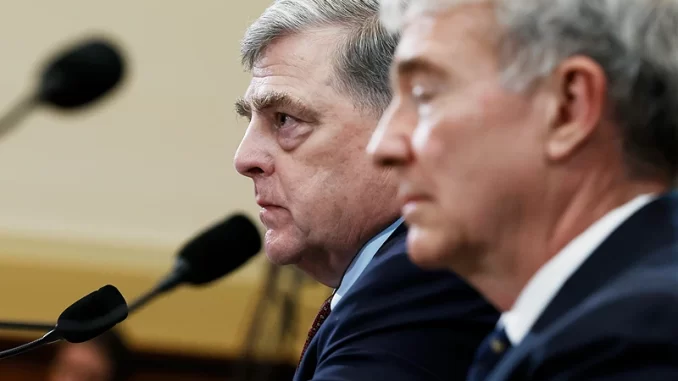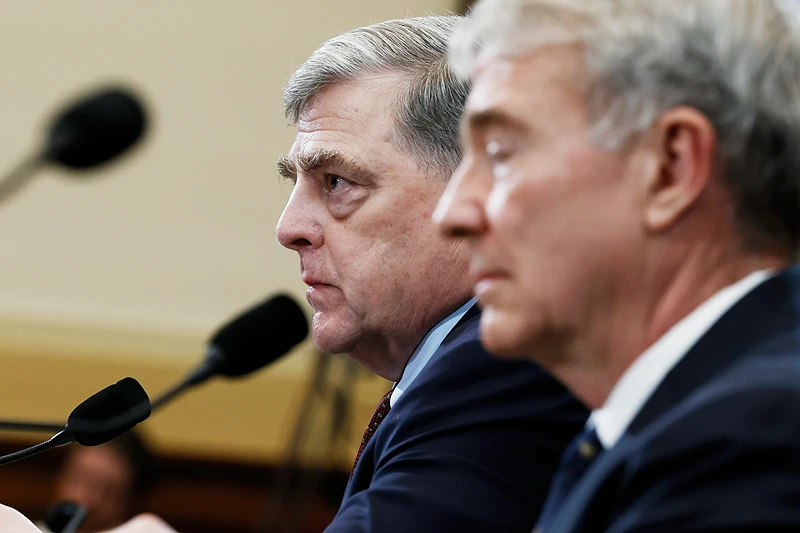

OAN’s Brooke Mallory
11:27 AM – Wednesday, March 20, 2024
In a congressional hearing on Tuesday, the two senior generals overseeing the U.S. military’s exit from Afghanistan in 2021 laid the responsibility on the State Department for delaying orders for a “noncombatant evacuation operation” regarding remaining U.S. residents in Afghanistan.
Advertisement
“The fundamental mistake, the fundamental flaw, was the timing of the State Department,” said retired Gen. Mark Milley, former chair of the Joint Chiefs of Staff. “That was too slow and too late.”
Milley oversaw the final days of the United States’ two-decade presence in the war-torn nation of Afghanistan, together with former General Kenneth McKenzie, who led the U.S. Central Command. At least 170 Afghan civilians and 13 U.S. servicemen were killed in an incident that occurred during the mad dash to escape the country and its Taliban terrorist overlords.
The head of the House Foreign Affairs Committee, Representative Michael McCaul (R-Texas), maintained that the backlash had damaged America’s credibility and standing.
“That damage will last for generations,” McCaul said.
According to Milley’s testimony to the Senate in September 2021, officials from the Pentagon had advised keeping 2,500 American troops in Afghanistan and had forecast that the Afghan government would fall apart if American forces were to leave.
More than 120,000 Afghans were flown out during the evacuation, which Milley called a “logistical success but a strategic failure.”
He underlined that the pullout was a strategic failure and acknowledged the presence of relatives of soldiers lost in Afghanistan at the hearing on Tuesday. However, he also commended the efforts of troops who evacuated American and Afghani civilians as well.
According to McKenzie, 13 service members were killed during the evacuation as a result of policy choices rather than the actions of soldiers on the ground.
Milley and McKenzie went on to say that much of the pandemonium in Kabul in August 2021 was caused by the State Department’s inability to prepare ahead and order the evacuation sooner.
Meanwhile, both the Biden administration and the Trump administration were criticized in a July State Department report for not having adequately planned for “worst-case scenarios” prior to the withdrawal.
The State Department claims that its capacity to assist was “hindered by the fact that it was unclear who in the Department had the lead.” The Pentagon had also been planning an evacuation operation for “some time,” according to the report.
The “straw that broke the camel’s back,” according to Milley, occurred in mid-August 2021 when Ashraf Ghani, the president of Afghanistan, left the nation as Taliban forces closed in on the capital. Milley stated that Afghan forces began disrobing themselves of their uniforms following Ghani’s exit.
Following the withdrawal, President Joe Biden’s approval rating fell below 50%.
Stay informed! Receive breaking news blasts directly to your inbox for free. Subscribe here. https://www.oann.com/alerts

